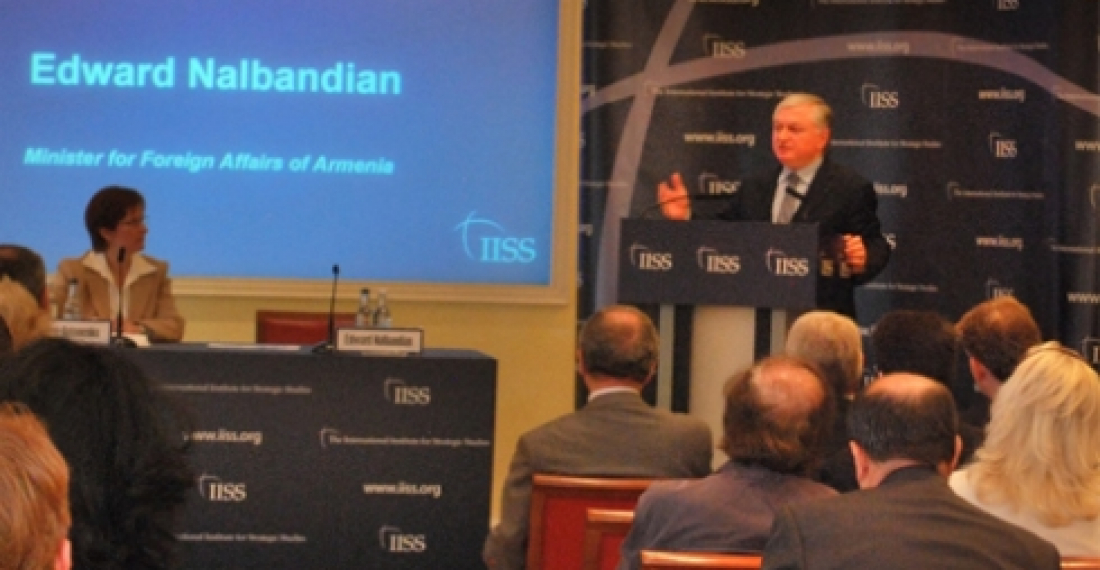The Foreign Minister of Armenia Edward Nalbandian spoke about the latest developments in the negotiations over the settlement of the Nagorno-Karabakh conflict at an event at the International Institute for Strategic Studies in London. The Armenian Foreign Minister stated that before the final settlement Nagorno Kharabakh will have an interim status that must be fixed internationally.
According to Nalbandyan, this is what the mediators suggested and the Azerbaijani President agreed with in Prague in May 2009. The interim status means “status quo plus”, i.e. all that Nagorno Karabakh possesses today plus the international recognition of the status, said the minister.
Commenting on the statement of his Azerbaijani counterpart that it is senseless to waste much time on the coordination of basic principles and it will be more correct to start the drafting of the peace agreement immediately, Edward Nalbandyan said that in this way Azerbaijan is trying to “get rid of” the basic principles suggested by the mediators and “kill” the process of the recent years.
source: commonspace.eu with reporting from Mediamax.am
photo: courtesy of the Armenian Foreign Ministry







